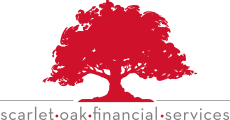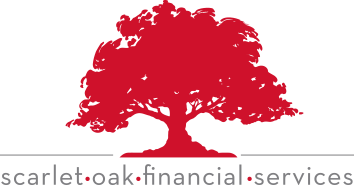If you’re currently working with a financial advisor, do you ever find yourself wondering if you’re getting a competitive return on your investment portfolio? Do you question whether or not you’re paying a fair and reasonable fee? Or, if you’re in the midst of searching for a new financial advisor, does each firm sound just a little too good to be true? There are four critical issues you should watch for as you begin to evaluate your existing or prospective wealth management professional.
Sign number 1. The Blemished Background
The first thing you should do when evaluating a financial advisor is to check his or her regulatory record using FINRA BrokerCheck or the SEC Investment Adviser Public Disclosure website. It’s free, it’s easy and it’s quick, and it can potentially save you from making a costly and often irreparable mistake. Also, If an advisor moves too often – say, every 3 to 5 years – it may well be that they are putting your financial interests behind their own.
Sign number 2. Conflicts of Interest
Most investors believe that all financial advisors are required to act in the best interests of their clients at all times. Unfortunately, for at least a portion of their client interactions, 85% of advisors are only required to adhere to the suitability standard, which mandates that the products and services they recommend be suitable given a client’s overall financial positions, risk tolerance and investment objectives.
When an advisor makes a portfolio recommendation, be sure to ask whether the recommendation is being made as an advisor or as a broker. If the latter, the suitability standard is likely in play. Be sure to probe the advisor about fees associated with the proposed investment, both for the advisor and his or her firm, and ask about less expensive, conflict-free alternatives that might be available.
Sign number 3. Opaque and Excessive Fees
Both the magnitude of fees and the lack of transparency surrounding them are a major issue across the wealth management industry. All too frequently, clients are unknowingly paying multiple layers of fees – advisory fees, fees to 3rd-party managers, mutual fund expense ratios, transaction charges and custodian fees, to name a few – and in many cases, the fees exceed what can be justified based on the client’s asset level, the complexity of their situation, and the value provided by their advisor. We advise asking your financial advisor to disclose your total, all-inclusive annual fees, or in the case of a prospective advisor, what they would be if you decided to work together.
Sign number 4. Poor Performance Reporting
Last but certainly not least, sub-par performance reporting continues to be an issue across the wealth management industry, with many advisors and firms failing to provide clients with a transparent, comprehensive view of their investment performance. Rather than offering a clear view of portfolio performance versus an accurate benchmark, many advisors will compare complex portfolios to simple or inappropriate benchmarks, leaving the client with an inaccurate view of how their assets have fared over a particular period of time.
Be sure to ask your current or potential advisor if he or she has the ability to provide you with comprehensive performance reporting. Your report should include a summary of your total portfolio return and a comparison of portfolio performance versus an asset weighted benchmark.
Scarlet Oaks Financial are qualified Atlanta Financial Advisors. If you are looking for an Atlanta Financial Advisor, contact us today and let’s set up an appointment so we can guide you through your Investments.
Scarlet Oak Financial Services can be reached at 800.871.1219 or contact us here. Click here to sign up for our weekly newsletter with the latest economic news.



